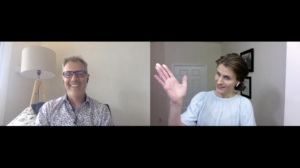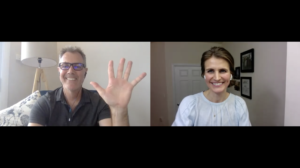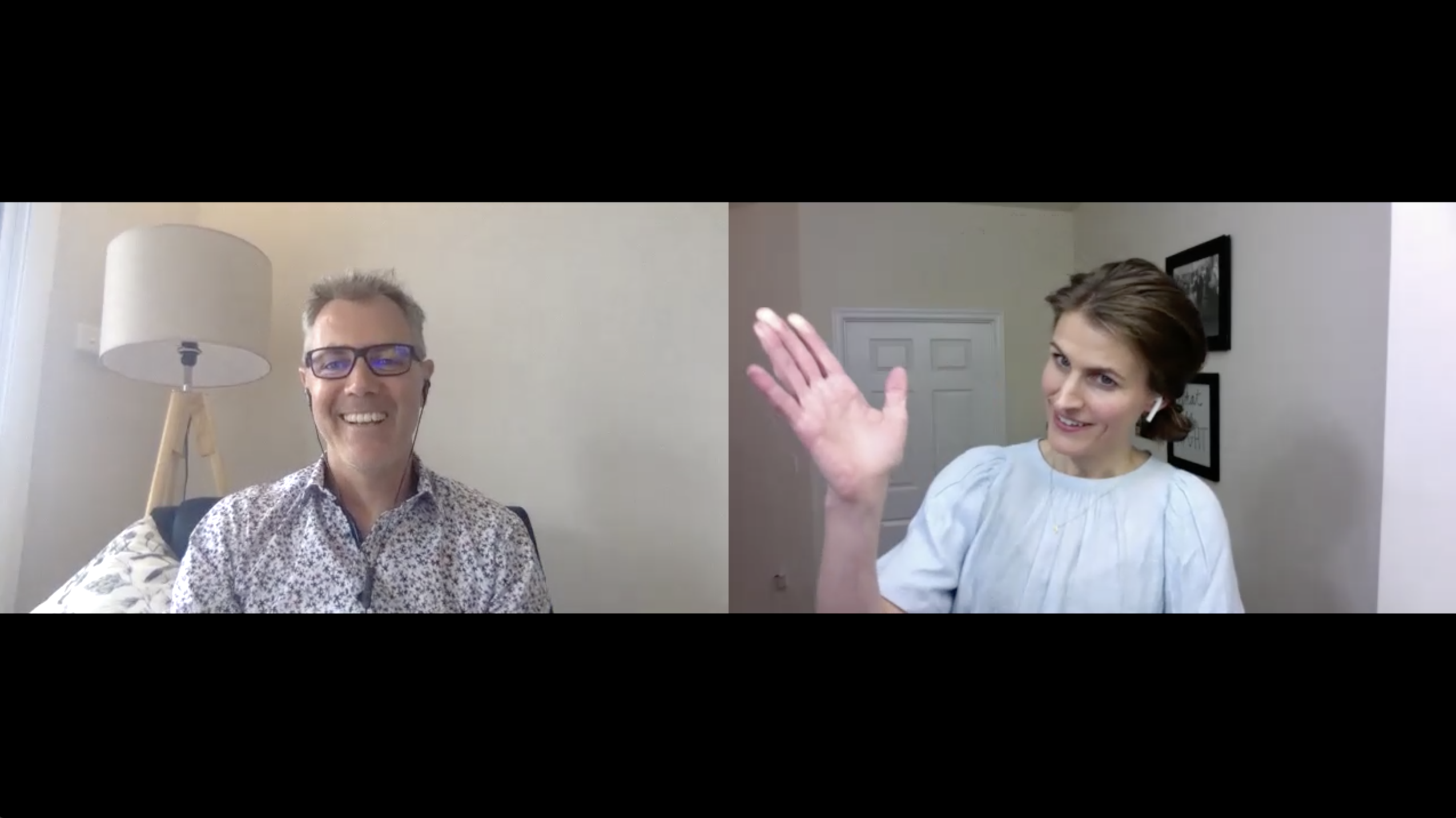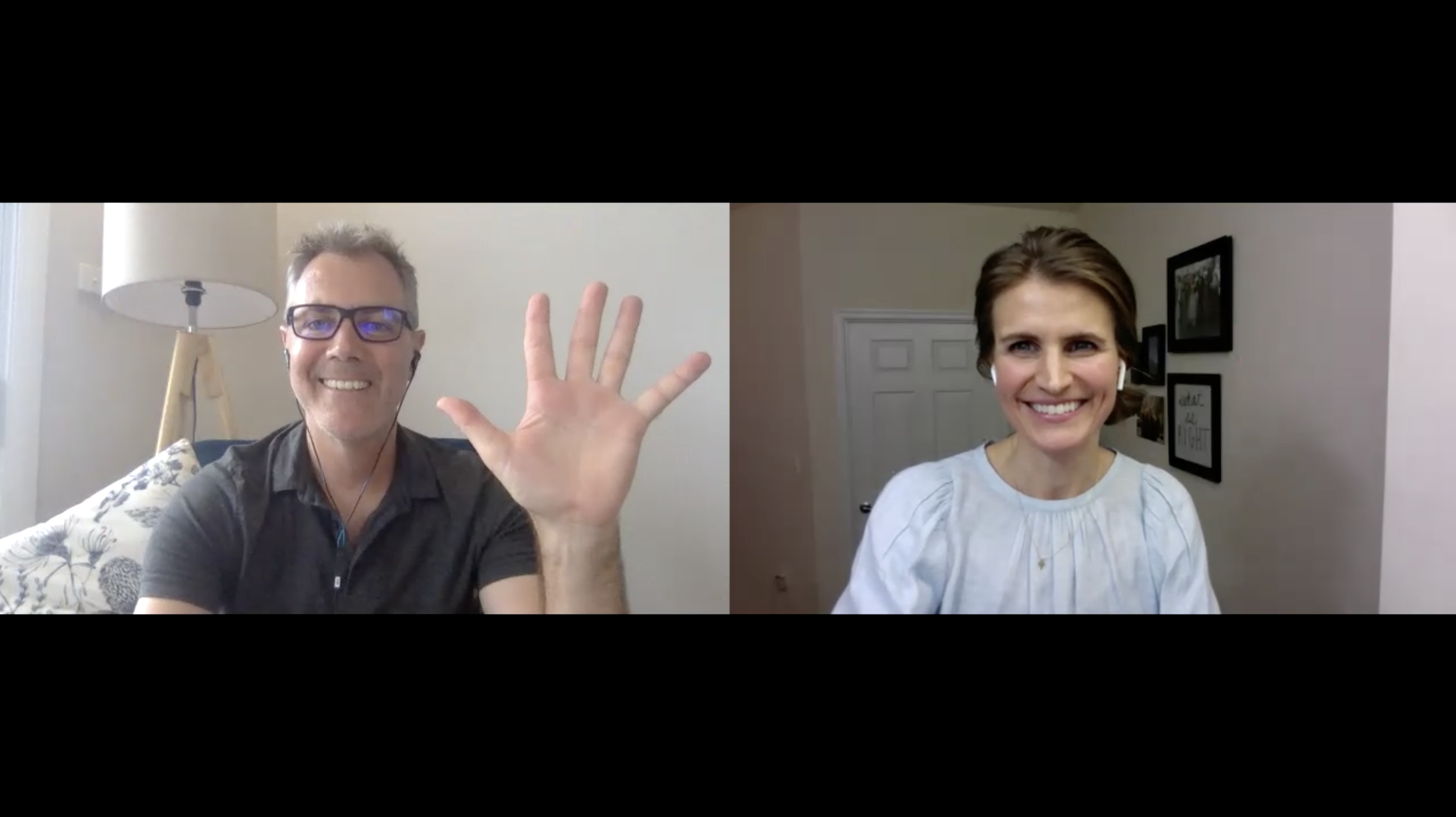My friend and colleague Marc Otto uses the Speed Reading study to tell a story that opens our eyes to our own biases and our best paths to living and leading well. Beware, because this story could change everything for you.
If you have been around the world of strengths-oriented development or positive psychology, chances are, you have heard of the Speed Reading study. If you haven’t, it’s probably new to you.
Either way, you are in for a treat as you read this recap that blew my mind when I first heard it {even though I had heard it described several times before}.
Four Ideas from The Speed Reading Study
Our goal is to teach you four things today that are really important, may challenge the way you think or live, and I hope, challenge the way you relate to others and the way you lead.
These four ideas come out of a formative story in the history of Gallup, from Don Clifton, when he was a researcher in the University of Nebraska in the 1950s. He was chair of the psychology department, and had a student doing a research project with high school sophomores, around talent in reading.
The story starts with two groups of readers—Gifted and Normal. The Gifted group was reading at a remarkably high rate, with comprehension—350 words per minute. The second group, the Normal group, were reading at 90 words per minute, with comprehension.
The researchers decided to put both groups through the same speed reading course to see what would happen.
The faculty—apparently—flipped out, and said, “No, you cannot do this, Don. This is going to mess up these kids.” They knew what would happen. “You’re going to take this natural talent and mess it up by trying to put it in a structure and develop it, rather than allowing that natural talent to flourish on its own.”
But, Clifton said, “No, it’s just reading…let’s try it,” and so they did.
Develop Areas of Natural Talent
Here is what happened.
The Normal group—who was reading at 90 words per minute—went through the speed reading course, and on the other end, they improved to about 150 words per minute with comprehension, or about a 66% increase.
Remarkable.
Even more remarkable is what happened here. What would you say happened to the gifted group, the kids reading 350 words per minute? Does it actually go up? Did the kids blow it off, and it stayed the same? Or does it—obviously—go down?
Here is what happened.
This gifted group went all the way up to 2,900 words per minute—that’s an 828% increase.
828% improvement by taking a speed reading course when they were already gifted in reading!
So the very first principle is this:
Number 1 :: You have more room to improve in your areas of natural talent than weakness.
You have more room to improve in your areas of natural talent than weakness. You can see that here on the chart. If scaled correctly, the improvement would go through the roof.
So you literally have more room to improve on what you already do well than others do. That’s the very first point.
Here’s the next thought about these gifted readers, leading to our second point.
Gain Talent Self Awareness
We estimate that a certain amount of these gifted readers knew they were gifted in speed reading. How many in the the gifted group knew that they were gifted? Almost all? Half? None or very few?
We suspect that of this gifted group of high school sophomores reading over three times the normal group, that less than 10% of those gifted readers knew they were gifted readers—less than 10%.
They are gifted from all external measures, but to themselves, they are normal. They do not know any other normal way to read. The gifted group doesn’t see themselves as gifted.
As a result, they also see the Normal readers, who read at 90 words per minute, as you would guess—slow.
So, the second idea is this:
Number 2 :: Most people, like you and I, have low specific acuity or clarity about where our greatest natural talents lie.
Most people have low acuity or clarity about where their greatest natural talents lie. What do we tend to be aware of? Well usually what drains us, or what we don’t do well. We’re far more aware of that than what we do really well, because a lot of it is unconscious. A lot of it is our normal.
There are two areas where we do tend to identify talent and develop it—athletics and music. But if you’re not a rock star or an athlete, it kind of leaves most of us going, “Well what the heck am I good at? What should I be doing? What is talent?”
So we seek, quite aggressively, to really expand our understanding of talent, and to help us try to figure out where that is so we can develop it.
So here is a recap:
Number 1 :: You have more room to improve in your areas of natural talent than weakness.
Number 2 :: Most people, like you and I, have low specific acuity or clarity about where our greatest natural talents lie.
Now for the third point.

Choose to Develop Talent
If less than 10% of the Gifted group know that they are gifted in speed reading, what percent of the 10% do you think wanted to actively develop that speed reading talent? All? Half? Only a few?
If you actually have a sophomore in high school {or you are one!} this question will be easy to answer. If you told your sophomore in high school that she reads 3x faster than most people in her class and so you are enrolling her in a speed reading class over the summer so she can get EVEN better at it, it would blow her mind.
She would revolt. No way would she want to spend time getting better at something that she already excels at naturally.
While it holds some conjecture on our part, we assume that less than 10%, maybe even 0%, of the 10% that knew they were gifted, would want to actively develop it. It is not how people are wired. It is not how our culture is wired.
Certainly high school sophomores are not looking for more opportunities to read faster when they already read faster in general.
This brings us to the third point.
Number 3 :: Most people are not actively developing their talents.
Most people are not actively pursuing things that they do better than others. So, you can see the challenge. That is, your best is leaning into what you do well. Yet, most people do not really know what that is, and an even a smaller percentage are actively developing it.
So, so far we have:
Number 1 :: You have more room to improve in your areas of natural talent than weakness.
Number 2 :: Most people, like you and I, have low specific acuity or clarity about where our greatest natural talents lie.
Number 3 :: Most people are not actively developing their talents.
Here is the fourth and final idea.
Return on Talent Investment
Both of these groups—the Gifted group and the Normal group—took the same course and put in the same amount of time and investment. One gets you an 828% return. The other gets you a 66% return.
To get greater returns, the Normal group would have to extend the amount of time and investment… and, most likely, still never get even close to the improvement that the Gifted group saw in speed reading. And be miserable along the way.
You get lower return on investment when you start with lower natural talent.
The fourth point is a little depressing—generally what you suck at, you’re always going to suck at. Or said with more application and appropriateness, here is the fourth idea:
Number 4 :: Your return on investment in areas of low natural talent will be smaller than your return on investment in areas of higher natural talent.
You can spend a lot of your time in life trying to develop in areas where you do not have natural talent, even just to turn that dial on talent a degree. It takes a lot of time and effort.
There are a lot of people who spend a lot of time trying to manage those areas, working really hard to get to average. In the end, they often feel below average, because they had to work harder than the average person to get average.
At the end of the day, if it’s speed reading, or a product, a service, or a way you lead, at the end of the day, you’re still delivering an average product.
By and large, the research suggests that most people are living life wrong—spending most of their time and their energies developing areas of low natural talent, for mediocre results. They are not really aware of or leaning into their greatest natural talents, and developing those to make the biggest impact over the longest amount of time.
Implications of the Speed Reading Study
Here are the four points again in summary:
Number 1 :: You have more room to improve in what you already do better, than what you don’t.
Number 2 :: Most people have low clarity about where—specifically—their greatest talents lie. Many of us are still trying to figure that out.
Number 3 :: Once they know their talents, most people are not actively developing those talents, and how those talents can specifically and uniquely work for them.
Number 4 :: Most people, sadly, may be living life in such a way that they are spending most of their time and their energies feeling inadequate, and getting very mediocre results, developing low areas of competency and natural talent.
The Strengths movement, as imagined by Don Clifton way back at the time of this study, is here to help you figure this out — to unlock your talent, to lean into it, and help you manage your weakness and strengths. There is always a dual journey of leaning into what you do well, and managing what you do not.
Marc Otto is the mind and soul behind these four points. He says:
Listen, I’ve tried golfing. I have low natural talent. I’ve taken classes. I’ve bought better clubs. It simply makes me swear and break things. It makes me a really bad person. That’s an area of low natural talent. I no longer golf.
Let’s figure out your areas of natural talent. Let’s develop them. Let’s figure out how to manage your weaknesses. Let’s see if we can’t get you thinking, and learning, and living, and ideally leading in a way that is more natural to your wiring, and more effective.

Thank you to Marc Otto for figuring out your talent and sharing your brilliance with the world. Find Marc Otto and the Strengths Consulting Group at strengthsconsultinggroup.com.
LINKS | RESOURCES | CONNECT
Links & Resources from today
Discover your Top 5 Strengths with StrengthsFinder + Strengths Startup
9 Steps to Life-change {FREE Checklist}
{9 Steps} to Life Change through your StrengthsFinder Top 5 Strengths
How to Use your Strengths for Life-Balance | Isogo TV Balance Miniseries {ROUNDUP}
Marc Otto | Strengths Consulting Group
Connect
The Strengths-perspective can impact your marriage, your parenting, and your work!
If you’re into it or you’re just not so sure about it all, reach out, and let’s connect about it. You can catch me on Facebook, Twitter or Instagram, all at @isogostrong, by this handy contact form, or in our Energy Up Frustration Down facebook group.
Enjoy your day, and {be strong}!










